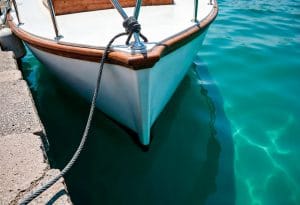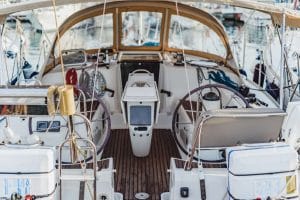The International Maritime Organization (IMO) plays a crucial role in regulating and promoting safety, efficiency and sustainability in the global maritime arena. As a specialized agency of the United Nations, the IMO is dedicated to setting international standards ranging from the safety of navigation to the prevention and control of marine pollution.
This article delves into the importance of the IMO as regulatory authority in the maritime sector, highlighting its achievements, challenges and the impact it has on the protection of the oceans and the sustainable development of the shipping industry.
What is IMO?
The IMO (International Maritime Organization) is the agency responsible for regulating maritime transport worldwide and to establish rules and regulations to guarantee safety and efficiency in maritime navigation. The IMO is an intergovernmental organization composed of 170 member countries and three associates, based in London, United Kingdom.
The IMO works in collaboration with other international bodies, including the United Nations Convention on the Law of the Sea (UNCLOS), to improve the safety and protection of the marine environment globally.

What is the mission of the IMO?
The mission of the IMO is to improve the efficiency and safety of maritime transport and to ensure a safe, efficient and environmentally friendly navigation. The IMO fulfills this mission through the adoption and application of maritime standards and regulations that apply to all member countries.
These rules and regulations cover a wide range of topics, including the construction, equipment, operation and maintenance of ships and vessels.
In addition, the IMO is also working to improve the safety of human life at sea, prevention of marine pollution and protection of the marine environmenteither. To achieve these objectives, the IMO establishes specific rules and regulations on navigation safety, pollution prevention and environmental protection.
It also provides technical assistance and training to member countries to help them implement and comply with these standards.
Are you interested in: Can you sail with the PER outside of Spain?
What type of maritime regulations does the IMO establish?
The IMO sets standards in a wide range of areas including ship construction and classification, crew education and training, navigation safety, prevention of marine pollution and the regulation of the loading and unloading of dangerous goods. .
These standards established by the IMO are important to ensure safe navigation and protect the marine environment.
The standards established by the IMO are voluntary for member countries, but member countries undertake to respect and apply these standards in their maritime operations. The IMO also offers technical assistance and training to member countries to help them implement maritime regulations effectively.
What are the member countries of the IMO?
IMO member countries come from all over the world and span a wide range of geographic regions, from North America and Europe to Asia and Africa.
Some of the most prominent countries that are members of the IMO include the United States, China, Japan, Germany, the United Kingdom, France, Russia, Australia, and Singapore. Any country that has an interest in shipping and navigation can join the IMO as a member country.
It is important to highlight that IMO member countries undertake to respect and apply the maritime standards established by the IMO in their maritime operations.
In addition, the IMO offers technical assistance and training to member countries to help them implement the standards effectively. In this way, the IMO plays a crucial role in promoting safety and efficiency in maritime transport, as well as in protecting the marine environment globally.




